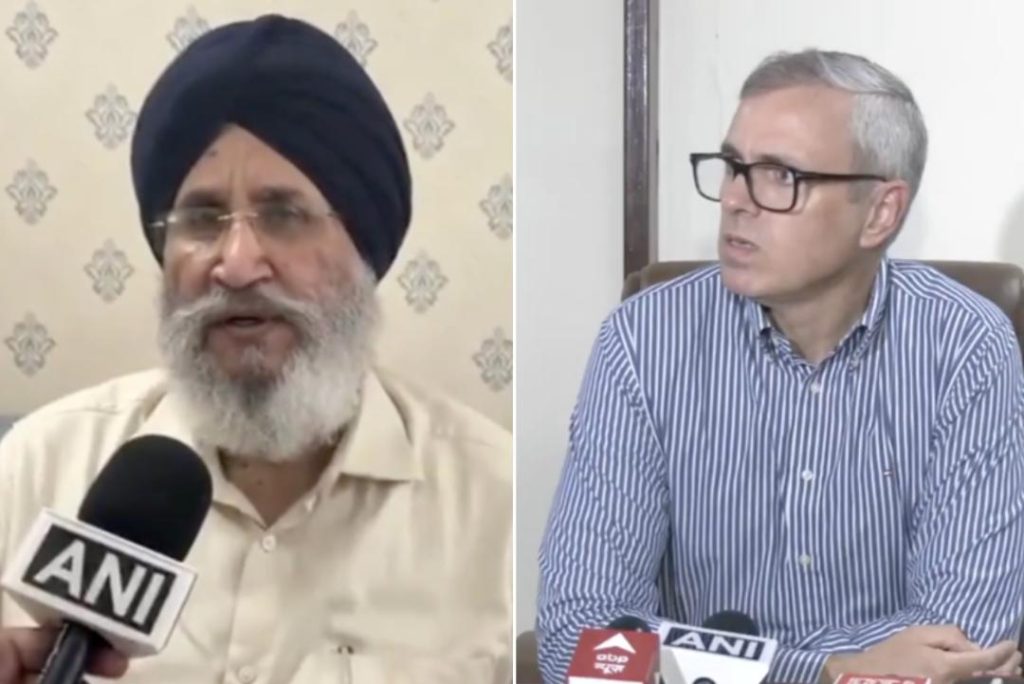
Title: J&K CM’s remark on water sharing unreasonable: Akali Dal leader
The recent statement made by Jammu and Kashmir Chief Minister Omar Abdullah, stating that he will not share any water with Punjab, has sparked a controversy. The Chief Minister’s remark has been condemned by Shiromani Akali Dal leader Daljit Singh Cheema, who has termed it as “unreasonable”. In this blog post, we will delve into the context of the issue, analyze the reactions, and explore the implications of this development.
Context
The issue of water sharing is a contentious one in the region. The Indus Water Treaty, signed between India and Pakistan in 1960, allocates the waters of the Indus, Jhelum, and Chenab rivers among the two countries. The treaty also provides for the sharing of water among the states within India, including Punjab, Haryana, Rajasthan, and Jammu and Kashmir.
Punjab, being the upstream state, has always been concerned about the management of the river waters. The state has been seeking a fair share of the water, particularly from the Ravi and Beas rivers, which flow through it before entering Pakistan. In recent years, the state has been facing water scarcity due to drought and other factors, making it imperative to ensure a stable water supply.
Omar Abdullah’s statement
In a recent interview, Jammu and Kashmir Chief Minister Omar Abdullah stated that his state will not share any water with Punjab. He cited the state’s own water requirements and the need to ensure the well-being of its people. The Chief Minister’s statement has been seen as a direct challenge to the Indus Water Treaty and the existing arrangements for water sharing among the states.
Reaction
The Chief Minister’s statement has been widely criticized, particularly by the Shiromani Akali Dal (SAD), a political party from Punjab. The party’s leader, Daljit Singh Cheema, has termed Abdullah’s remark as “unreasonable” and “unacceptable”. Cheema stated that the Punjab state has always been willing to share its water with Jammu and Kashmir and other states, but the Chief Minister’s statement has created uncertainty and tension.
Cheema also pointed out that the water sharing agreements have been in place for decades and have been beneficial to all parties involved. He stated that the Punjab state has not been seeking to monopolize the water resources, but rather, it has been seeking a fair share of the waters. The SAD leader also expressed disappointment that the Chief Minister’s statement has not taken into account the interests of the people of Punjab, who have been facing water scarcity and other problems.
Implications
The Chief Minister’s statement has significant implications for the region. Firstly, it has created tension between Jammu and Kashmir and Punjab, two states that have historically had close ties. The statement has also raised concerns about the potential impact on the Indus Water Treaty and the existing arrangements for water sharing among the states.
Secondly, the statement has raised questions about the priorities of the Jammu and Kashmir government. While the Chief Minister has stated that his state’s water requirements are a priority, the SAD leader has pointed out that the state has not been using its water resources efficiently. The SAD leader has also questioned the Chief Minister’s commitment to the welfare of the people of Jammu and Kashmir, particularly in the context of the ongoing protests and unrest in the state.
Finally, the statement has also raised concerns about the potential impact on the relations between India and Pakistan. The Indus Water Treaty is a bilateral agreement between the two countries, and any changes to the agreement could have significant implications for the relations between the two nations.
Conclusion
In conclusion, the Chief Minister’s statement on water sharing is a significant development that has implications for the region. While the Chief Minister has stated that his state’s water requirements are a priority, the SAD leader has pointed out that the state has not been using its water resources efficiently. The statement has also raised concerns about the priorities of the Jammu and Kashmir government and the potential impact on the relations between India and Pakistan.
It is essential for the parties involved to engage in constructive dialogue and find a solution that is fair and reasonable for all parties. The Indus Water Treaty has been in place for decades, and it is essential to ensure that it continues to be effective and beneficial to all parties involved.






